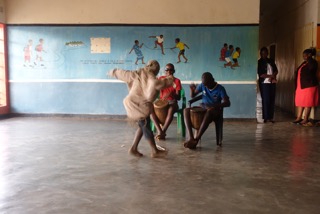Southern
Africa is known for its mining industry, for better and worse. Gold, copper,
uranium and a large number of valuable minerals and rear earth have contributed
to economic growth in several countries in the region. Being quite dependent on the world market
prices, mining is at the same time keeping economies hostage to those
variations.
Malawi has
not yet developed its mining potential to a significant level. Tobacco has been by far the main export
earner, but the world trend is not in favour of this trade. Mining is seen as one of the
alternatives. A satellite geological
survey was carried out last year, and great potentials were heralded by the
government. Some investors are in place,
and explorations are on-going in some places.
The relationship between local communities and mining companies are not
always the best. Local communities have
high expectations, but they fail to see benefits coming their way when exploration
machinery invade their territories.
NCA has
together with a coalition of local partners engaged in extractive industries
with the notion that extracting values from Mother Earth should give benefits
to those who have possessed the land, those who should benefit from redistribution
of revenue collected by the government, the investors… and Mother Earth through
environmental concerns.
This week I
participated in a face-to-face meeting with bosses of a mining company that is
involved in exploration of rare earth in the south-eastern part of Malawi. NCA invited representatives of the coalition
and other civil society organisation, and government through the geological
survey to an open dialogue with the company.
NCA had earlier commissioned a study in the communities affected by the
activities of the mining company, and had engaged them in an interactive “village
theatre” to highlight burning issues. The producers of the report joined us for the meeting.
Community members engaged in "village theatre"
The
meeting, which was said to be the first of its kind, turned out to be extremely
interesting and fruitful. In an open atmosphere we listened and contributed. The
local communities had enumerated a wide range of problems and expectations related to the entry
of the mining company. In spite of its comprehensive efforts to support
projects that the community had requested, including rehabilitation of schools, building bridge, drilling water the image of the company was still dubious.
A "happy classroom" decorated by the mining company
A bridge built by the mining company
As the mining company was given the
opportunity to share their side of the story, we quite clearly realized that we
are faced with one main challenge:
COMMUNICATION. As clarifications
were offered across the table, it was clear that misinformation and misconception
were obvious. We further realized that
inherent tensions and conflicts among and between local communities played out
through the relationship and perceptions of the exploration activities that
were taking place within their territories.
The joint
conclusion was that such meetings should have taken place much earlier. As we move forward with new dialogue
meetings, the possibilities of developing better approaches for processes of
interaction between communities and private sector that can result in “win-win”
situations should be possible. Responsible extraction of natural resources can
benefit all stakeholders. I was pleased that I as NCA representative could
contribute to this face-to-face encounter.











